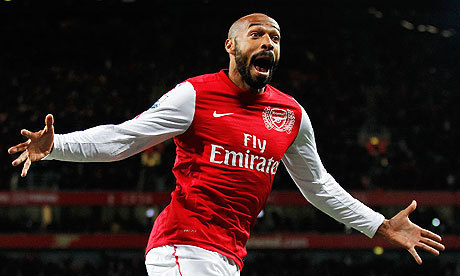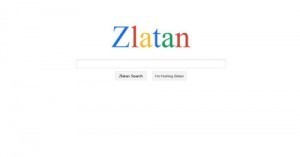Laurent Dubois's Blog, page 66
April 10, 2015
The Role of Substitutes
It’s no secret that every athlete wants to maximize the time they are able to play the sport they love. And what is the best way to maximize time on the pitch? Starting the game and controlling your level of play. After all, who wants to spend time on the bench, especially in the context of professional soccer where there are strict rules relating to substitutions? Teams are only permitted three substitutions per game, and once a player is on the bench, they are not permitted to return [1]. This can be a very stressful constriction, as players not wanting to be prohibited from returning to the game often play through an assortment of injuries. Many are calling for a reform in the substitution rules to incentivize players to pay attention to their injuries [2]. Nevertheless, coaches must use their substitutions very carefully, saving them for either injuries or strategic infusions of energy.
As my youth coaches coined it, adding a “fresh pair of legs” toward the end of the game can be the difference between a win and a loss. Many games in major tournaments have been decided by the goal of a player coming off the bench. Let’s appreciate some of the most important goals scored by substitutes in recent years.
Goal #1: 2014 World Cup Final
Germany versus Argentina
Goal Scored by: Mario Götze
https://youtu.be/KDJBOk-roDU?t=14m21s
Götze scored in the 113th minute of the 2014 World Cup Final in order to give Germany the 1-0 lead [3]. Interestingly enough, the assist for the goal also went to a fellow substitute, André Schürrle, who entered in the 33rd minute for Christoph Kramer. Götze’s goal showed immense skill, as he used his chest to trap the ball and proceeded to volley the ball past the keeper into the opposite side netting. Götze replaced Klose (one of my personal favorite German players) in the 88th minute, giving the German side an extra burst of speed for overtime. From a television perspective, the fact that this goal was scored almost immediately after Schweinsteiger had to exit the field due to a bleeding cut on his face is comical, as they barely had time to return to the live feed before the goal was scored.
Goal #2: 2014 World Cup Round of 16
Belgium versus USA
Goal Scored by: Romelu Lukaku
https://youtu.be/uoBCahhd3TU?t=15m41s
Although this goal was not the go-ahead goal for Belgium, it did prove to be the one that ensured Belgium’s victory when the US answered with a goal of their own in the waning minutes of extra time. Belgium’s substitutes proved to be the difference in many of their World Cup tournament games, with three Belgian substitutes scoring in group play alone [4]. Belgian head coach Marc Wilmots changed the starting lineup for almost every game. Lukaku started most of the prior games in the tournament, but he did replace Origi in the middle of this game, proving how it can be an advantage to have someone of Lukaku’s speed and skill coming off the bench. Lukaku challenged Tim Howard many times throughout the course of extra time apart from the time he scored. His pass to Kevin De Bruyne set up De Bruyne’s goal in the 93rd minute (although admittedly De Bruyne did turn the corner on his own.) Lukaku’s fresh bursts of speed as the game was ending really made a difference, as he did not have to deal with the same level of fatigue as the other players who had already been playing for 90 minutes
Honorable Mention Goal
Goal Scored by: Julian Green
https://youtu.be/uoBCahhd3TU?t=16m55s
Julian Green came off the bench in extra time, scoring almost immediately after he came in. This goal, although it did not lead to a US victory, led to a flurry of US shots and chances that made this game the single most stressful I have watched in my entire life. By limiting the USA’s goal deficit to one, Julian Green gave the United States a second shot at winning this game. [5]
Goal #3: 2011 Women’s World Cup Semifinal
USA versus France
Goal Scored by: Alex Morgan
https://youtu.be/5IXjxP3ebUE?t=1m22s
Again, this goal did not put the US decisively ahead of France (Abby Wambach’s goal did that) but this is the goal that put Alex Morgan on the map. Many argued after her performance in this game that she deserved a starting spot; however, Morgan herself said “It’s been working with me coming off the bench, rather than being unsure if I’m going to play.” [6] For Morgan, it was not about her starting position, but instead about being prepared to play the game. As we now know, Alex Morgan has now become an integral part of the US Women’s team, and this was her first World Cup goal.
Substitutes are not just players marked for “in case of an emergency;” they are an integral part of the team and can have drastic effects on the outcome of the game. Especially in the waning minutes of extra time, substitutes’ added energy can be the entire difference in a game. Substitution rules are tough; you need to make every single one worth it. But when a substitute unexpectedly pulls through for the game winning shot, there is nothing better in soccer. Everyone loves the underdog, which is what substitutes are often perceived to be. It’s safe to say, however, that you can never count an player out, as you never know what kind of trick they’ll pull out of their sleeve, or hat as the case may be.
Sources:
[1] Laws of the Game. Zurich, Switzerland: Fédération Internationale De Football Association, 1998. FIFA, 2014/2015. Web.
[2] Bajaj, Aditya. “World Cup Proves It Is Time for FIFA to Change Substitution Rules.” Sporting News. N.p., 20 July 2014. Web. 09 Apr. 2015.
[3] “Götze Goal Wins Germany the World Cup.” Uefa.com. UEFA, 13 July 2014. Web. 10 Apr. 2015.
[4] “FIFA World Cup 2014 – Belgium vs. USA (Highlights) – BBC.” YouTube. BBC, n.d. Web. 10 Apr. 2015.
[5] “2014 FIFA World Cup™ – Matches – FIFA.com.” FIFA.com. N.p., 01 July 2014. Web. 10 Apr. 2015.
[6] Ubha, Ravi. “Alex Morgan Relishing Role of Super Sub.” ESPN. N.p., 14 July 2011. Web. 10 Apr. 2015.
April 9, 2015
Vous n’appartenez ici
Il y a un mois, mon amie est allée à voir le tournoi de basket de conférence de la côte de l’Atlantique (CCA). Cette conférence est une des conférences dans les États Unix qui jouent les matches de basket entrée les étudiants université dans la pays. Les sports entrés les universités sont très compétitifs. D’habitude, la CCA est la conférence la plus compétitive des autres. Il y a long temps, les conférences étaient désigne selon les régions du pays où on peut trouver les universités. Ca c’était pratique pour organisée les matchs pendant la saison. Maintenant, la région de l’université ce n’est pas très important parce que c’est plus facile de voyager pour un match maintenant comparé avec avant. Mais pour beaucoup des conférences, beaucoup des équipes viennent d’une région similaire. Donc, il y a beaucoup des équipes qui sont traditionnelles car ils ont commencé leur conférence. Par exemple, l’université de Duke et l’université de caroline du nord sont deux des fondateurs originaires dans le CCA. Mais la dernière année, la conférence a accepté trois équipes en plus – l’université de Notre Dame, Syracuse et Louisville. Les trois universités sont une réputation des bonnes équipés basket. Alors, la CCA est devenu plus compétitifs, avec plus d’intensité et des matchs incroyable.
Mais comme les résidents de caroline du nord, un état qui on trouve a la coté d’est, quand mon amie et sa famille sont allés a la grande tournoi de CCA, ils détesteraient toute des nouvelles équipes (Notre Dame, Syracuse et Louisville) parce que ils disaient que « Les trois équipes n’appartenaient ici. » Quand Louisville a perdu dans une match contre l’université de caroline du nord, la mère de mon amie est serré les mains des les fans des Louisville qui lui ses asseyaient a coté de lui. Avec sarcasme, elle lui a dit, « Bienvenue à la CCA. » Je dois confesser, ca c’était très drôle.
Par contre, je me demande que ce qui ce passerait si les sentiments d’appartenance étaient plus intenses. Maintenant, le scenario est drôle car nous savons que la haine n’est pas trop sérieuse. Alors que les trois nouvelles équipes apportent plus d’action et talents à la conférence, mon amie et sa famille les déteste sans raison sauf qu’ils ne sont pas les équipes traditionnelles. Mais que faire si ces sentiments d’appartenance avaient des conséquences drastiques? Que faire si ces sentiments étaient motivés par le racisme ou le xénophobie? Le foot en Europe a beaucoup des incidents racistes. Récemment, dans février, les fans des Chelsea ont insulté un homme noir dans le métro à Paris.
L’année dernière, un fan a jeté une banane au Dani Alves, un jouer de Barcelona pendant un match. La réponse d’Alves a commencé une campagne sur les médias sociaux contre le racisme.
Le racisme a un élément de supériorité. Peut-être, quelques fans européens pensent que les joueurs d’origines africaine ou Amérique du sud n’appartenaient pas. Je ne sais pas où ils trouvent ces sentiments des privilèges. Mais, si nous essayons d’aborder les insécurités contre change dans sport, peut-être ca c’était le premier pas.
Zlatan… Encore?!
En cherchant des nouvelles de foot, je me suis tombé sur un truc de Zlatan Ibrahimovic (notre jouer favori), qu’il faut mentionner. Avec toutes les postes à propos de Zlatan, voici une plus qui lui rend si amusant.
Zlatan a déjà sa propre verbe (zlataner), burger (le zlatan), timbres, et hashtag, mais maintenant, il a quelque chose formidable…. Son propre moteur de recherche!
Mieux que Google? Peut-être un jour…
http://blog.foxsoccer.com/post/115864...
April 8, 2015
Who Should Succeed Arsene Wenger?
It feels like every year there are calls for Arsene Wenger’s resignation. Anytime Arsenal hits a rough patch these calls come flying in from fans of all sorts. While most of these claims seem meritless at the moment there is no doubt that Wenger will eventually step down from leading Arsenal. Accordingly he will need a successor, one that upload the class, prowess, and legacy of the team. Over the course of the waves of resignation rumors that have floated around over the past few years several names have popped up as people who could fill Wenger’s shoes.

Names such as Pep Guardiola, Jurgen Klopp, and Dennis Bergkamp have been thrown around (among many others). However many of the candidates are simply not realistic. Pep Guardiola has a reputation for leading the biggest, baddest clubs in their respective leagues, and while Arsenal is a wonderful team, it really doesn’t fit the profile of the teams he’s led. Furthermore it really doesn’t seem as if he’s ready to depart from Bayern Munich. Jurgen Klopp and Dennis Bergkamp on the other hand are a different story. Jurgen Klopp is a favorite to lead Arsenal. Klopp became famous as the manager of Borrussia Dortmund as he led the team to the 2012/2013 Champions League Final (they ended up losing). In his time at Dortmund he has shown great talent but has said several times that he doesn’t see himself leading Arsenal anytime soon. Bergkamp knows the lay of the land quite well, being a former Arsenal player, and in the words of Thierry Henry was a “dream for a striker” could be a great next choice for Arsenal. Bergkamp has spent his last few years as an assistant coach at Ajax and has even stated in the past that he would love to come back and coach Arsenal.

Pep Guardiola
Personally I think there is one candidate that has all of the qualifications for the job: Thierry Henry. He is an Arsenal legend, and one of, if not the greatest Arsenal player of all time. He has an unwavering passion for the team and has taken up a coaching role with Arsenal’s youth team. Henry has the charisma, passion, and intelligence to lead Arsenal, and with his legacy he could attract top players to Arsenal. Although it may be a ways away, Henry is my pick to succeed Wenger.

Could Henry be Arsenal’s next coach?
Sepp Blatter and Sexism
During Tuesday’s class, Grant Wahl made one comment that stuck out to me–he said it was ironic when Sepp Blatter claimed to support women in football, when he’s made several blatantly sexist comments in the past. In the situation that Mr. Wahl referenced, Blatter suggested that female players wear tighter shorts. What he didn’t mention was the context of the comment, which, if possible, makes it even more sexist. BBC Sports reports that tighter shorts were Blatter’s attempt to increase popularity of the game. Upon further research, I found that Blatter’s blatant sexism extended beyond the pitch and into the boardroom.
In 2013, Blatter’s presidency, and the attitudes of those who worked below him, drove a woman to quit her job with FIFA’s Independent Governance Committee. Alexandra Wrage was a Canadian member of FIFA who considered her voice to be going unheard because of “blatant sexism” within Blatter’s administration. When I first read about this incident, it was on Bustle. I thought it might be an exaggeration. However, this article proves otherwise.
The irony of the story came one year later, when Blatter spoke openly about a need for women in FIFA’s governing body. He stated that current football administration had difficulty accepting women, and that they had to be more welcoming to women. These words came last August, just before the U20 Women’s World Cup. Could one year have been enough for Blatter to become earnestly prepared to treat women as equals? Or is he simply saving face so he can pick up a sixth term?
April 7, 2015
Gedanken auf „Verlacht, verboten und gefeiert: Zur Geschichte des Frauenfußballs in Deutschland“
In den nächsten Wochen werden wir Frauenfußballs studieren. „Verlacht, verboten und gefeiert“ ist eine fantastische Einleitung zum Frauenfußball. Es zeigt die Geschichte des Frauenfußballs vom Ende des 19. Jahrhunderts zum Heute. Obwohl dieser Bericht meistens Frauenfußball in Deutschland betrifft, hat er auch ein bisschen über Frauenfußball in anderen Ländern.
Seit Langem hatten deutsche Frauen eine traditionelle Rolle in der Gesellschaft. Gesellschaftliche Bräuche zwangen Frauen, gute Mütter und Ehefrauen zu sein. Da viele Deutschen glaubten, dass Fußball ein „Kampfsport“ war, sagten sie dass, Frauen Fußball nicht spielen sollten. Während der Weimar Republik hatte Frauenfußball, wie andere Sportarten, entwickelt. Die „Neuen Frau“ war ein populäres Phänomen unter moderne und städtische Frauen, weil sie vom Männer unabhängiger wurden. Sportlehrerin Carla Verständig sagte, dass Fußball ist „ein Mittel, um der Frau zu sich selbst zu helfen, um sich unabhängig vom Mann zu denken“. Obwohl diese Frauen gute Absichten hatten, waren sie erfolglos auf lange Sicht. [1]
Frauenfußball war nicht einschlägig in Westdeutschland bis 70erjahre. 1968 wurden Frauensports, einschließlich Fußballs, populär wegen der sozialen Bewegungen. Im Jahre 1970 hob die DFB ihr Verbot auf Frauenfußball und Westdeutschlands erste Landesmeisterschaft wird im Jahre 1974. Die westdeutschen Frauennationalmannschaft spielte ihr erstes Länderspiel im Jahre 1982. Obgleich die deutsche Frauennationalmannschaft in den frühen 80er Jahren Mühe hatte, Spiele zu gewinnen, gewann sie die 1989 Europameisterschaft. [2]
Heute ist Frauenfußball im Aufschwung. Die Nationalmannschaft hatte die Weltmeister im Jahre 2003 und 2007 gewonnen. Die Frauen-Bundesliga verzeichnet auch Erfolg. In Frankfurt beobachteten mehr als 44.000 Fans ein Spiel zwischen Brasilien und Deutschland. [3] Das war nicht ein Sonderfall. . [4] Die Weltmeisterschaft in Deutschland war einen großen Schritt in die richtige Richtung. Die 2015-WM kann nur Frauenfußball in Deutschland helfen.
[1] Eduard Hoffman und Jürgen Nendza, Verlacht, verboten und gefeiert: Zur Geschichte des Frauenfußballs in Deutschland, (Verlag Ralf Liebe: Weilerswist, 2011), 17-36.
[2] Hoffman und Nendza, 87-126.
[3] Hoffman und Nendza, 179-203.
[4] http://www.fifa.com/tournaments/archi...
Zitat
Hoffman, Eduard, and Jürgen Nendza. Verlacht, verboten und gefeiert: Zur Geschichte des Frauenfußballs in Deutschland. Weilerswist: Verlag Ralf Liebe, 2011. Print.
http://www.fifa.com/tournaments/archi...
From Hero to Zero, The Manager Cauldron
With the evolution of the English Premier league, expectations are at an all time high. Wealthy investors expect nothing but the best from their team and quite often fabricate erratic and instantneous decisions. The euphoria and prospects of garnering silverware can often cloud judgment and project a directors desires into a far from plausible stratosphere. The monumental stakes have also never been higher with next years’ mouth-watering £5.4bn TV deal up for grabs. An estimated £99million will be won by the last place team and £150million for the winners. However, it isn’t just the players who come and go, more often than not, it’s managers too. Managers often get blamed for the teams’ failings but the players take the honours of winning. The managers take the major brunt of their teams results and it seems they can never win. An owners’ fixation in elevating their reputation in this elite Billionaire Club means they have no qualms in paying for the extermination of a contract. To them it’s merely status and the team is just their toy to dissipate excess cash.
In total, the premier league amasses an average of 9 managerial changes a season. The 2014/15 season has already accumulated 9 changes and there is still a fifth of the season remaining. Thus far, there have been 4 firings, 3 resignations and 2 mutual consents. Perhaps even more startling are the figures for England as a whole and their other leagues. There has been whopping 49 managerial changes in all divisions. Remarkably, at the beginning of this season Mark Robins was sacked from Huddersfield Town after the very first game. It is also a common occurrence that after a team is promoted to the Premier League, expectations sky rocket and the managers frequently can’t live up to the conjecture and are dismissed.

The instability and mistreatment of mangers is a huge deterrent to other prospective & elite managers. Top managers don’t want to tarnishes their immaculate records and many desire time so they can teach and implement their philosophies to gel the team into one. Often, a manager’s arms are tied behind their back as they inherit a previously failing team. Furthermore, without a transfer window or sufficient transfer funds it’s a monumental task.
Mentally, a new manager provides some respite for the players as they can start afresh. We often see interim managers garner some big wins at first and then old trends prevail once again. Equally, the mental aspect and disapproval of a manager can likewise ruin a team, as was the case with David Moyes.
Managers should be given a time period that effectively allows them too settle in and build their empire to how they want it. Teams can reap huge rewards by acclaiming stability as we have seen in the Sir Alex Furguson era and the current Arsene Wenger realm.
But how can rules be implemented to protect managers and prolong their careers when financial burdens are not a deterrent? It’s merely wins in the short term that many overseas owners desire.
#SayNoToRacism?
Soccer is “The Global Game.” It is played by 250 million people across 200 countries, making it the world’s most popular sport. Yet, despite the fact that people of all ethnicities seem to love the sport, the game is quickly becoming famous for racism.
In February 2015, a group of Chelsea fans famously chanted racist remarks at a black man trying to enter the subway in Paris. They loudly chanted, “We’re racist and that’s the way we like it” as they forced him out of the car.


As we discussed after watching this egregious event, soccer fans have become infamous for racist and completely inappropriate chants. Well-known players such as Mario Balotelli, Dani Alves, and Samuel Eto’o have been pelted with bananas on the field and subjected to numerous other remarks.
In April 2015, Dutch fans chanted anti-Semitic slogans about the Holocaust during a match between Amsterdam’s Ajax and FC Utrecht. The Utrecht fans often refer to Amsterdam’s fans as “Jews” because of the Jewish community’s historic presence in the city.
The fans chanted “My father was in the commandos, my mother was in the SS, together they burned Jews cause Jews burn the best” and “Hamas, Hamas, Jews to the gas” for several minutes.
Although the club has vowed to identify and take action against the guilty fans, many Jewish activists have called for more action. Ronny Naftaniel put the onus on the players themselves, asking, “When will Ajax players walk off the field?” he said. “Take action against anti-Semitism.” In addition, The Foundation Fighting Antisemitism has reportedly filed charges against the club.
It is an open secret that racism runs rampant in soccer stadiums around the world. In response, players have attempted to raise awareness about racism. Sergio Aguero, Alves, and Balotelli began using the hashtags #WeAreAllMonkeys and #SayNoToRacism on Twitter after each was hounded during a game by both opposing and own fans. Afterwards, many other players began posting pictures of themselves eating bananas as well.

Moreover, certain leagues have attempted to combat this racism. For example, FIFA used advertising hoardings in the 12 stadiums at the 2014 World Cup in Brazil to deliver an anti-racism message.

However, Piara Power, the director of these efforts, has accused FIFA of not taking racism seriously enough and failing to take adequate action to limit racism in soccer stadiums. Although he acknowledged that it is difficult for FIFA to identify and punish individual fans, Power definitively stated that FIFA could take more action. In light of the prevalence of recent events, it is clear that he is right not only about FIFA, but other soccer leagues around the world.
As soccer continues to popularize, the governing bodies of its leagues need to prevent these egregious attacks on its players and fans.
Otherwise, it may not be the “Global Game” for much longer.
April 6, 2015
Ronaldo – 5 Butes dans la Destruction de Granada
Hier soir à 18 heures l’équipe de Real Madrid a joué contre Granada au stade de Santiago Bernabéu avec un résultat historique, où moins pour un joueur en particulier. Dans la victoire de 9 – 1, Cristiano Ronaldo a marqué cinq butes, dont trois en huit minutes. Avec son premier pendant la 30eme minute, Ronaldo a finit la compétition du match à la mi-temps en marquant dans les 36eme et 38eme minutes pour prendre l’avantage de 4-1 avant la pause. En retournant au terrain, il en marque encore deux autres dans la deuxième moitié, avec le dernier dans la 89eme minute. Gareth Bale a eu le premier goal dans la 25eme minute suivi par encore deux autres de Karim Benzema et un dernier par Mainz (og) dans la 83eme minute, qui a donné la victoire à Real avec le plus grand déficit en 47 ans.
Ronaldo a maintenant 47 butes en 41 jeux concernant tous les compétitions de l’année, et devient le plus haut buteur de la ligue avec 36, juste avant Lionel Messi (32).
Ceci marque aussi son 300eme bute pour Real Madrid et le met au niveau de plusieurs star qui ont aussi marquées cinq butes en un jeu comme :
Messi – 2012
Mandy Cole – 1995
Daniel Fonseca – 1992
Jurgen Klinsmann – 1986
Soren Lerby – 1979
Roberto Pruzzo – 1986
Malcolm Macdonald – 1975
Gerd Muller – 1976
Oleg Salenko 1994
La prochaine etape pour Real sera de se battre contre Barca pour la coupe dans leur prochain jeu contre Rayo le 8 Avril.
http://www.goal.com/en/news/1717/edit...
El lado oscuro del fútbol
Silvio Berlusconi, Roman Abramovich, Rinat Akhemtov, Khaldoon Al Mubarak. ¿Qué es lo que todos tienen en común? Berlusconi es el dueño de AC Milan, Abramovich posee Chlesea FC, Akhemotv Shakhtar, Mubarak Manchester City. Todos estos dueños tienen fortunas que suman a mil millones de dolares, y con sus propias fortunas, están destruyendo el deporte. Piensa que esta es una declaración muy fuerte o belicosa, sin embargo la realidad es que los dueños han creado una economía global que está erosionando el fútbol. Según a James Carr, un escritor por Bleacher Report, por los empresarios pudientes, a ser dueño de un club de fútbol es un “gasto de mercadotecnia, una manera de ocultar el dinero de los líderes mundiales de poca confianza, un lugar seguro para guardar el dinero de los contadores indiscretas”. Entonces, en lugar de que refleja el corazón de la comunidad, el fútbol refleja ahora la economía mundial y los deseos de sus conductores (Carr).
Las inversiones en ciertos clubes causan una batalla por premios entre clubes con lo más inversiones mientras los clubes con menos inversiones luchan entre sí por clasificaciones en la tabla. UEFA ha establecido una nueva resolución “Juego limpio financiero” que supuestamente terminar las prácticas y las disparidades que crean una jerarquía impenetrable de clubes elites. Esta jerarquía también disminuye la calidad de la hincha experiencia. El aumento de los precios de las entradas y la falta de áreas seguras de pie han impido fútbol a estar en el corazón de las comunidades, sin tener que preocuparse por los derechos internacionales y el dinero oculto.
La experiencia hincha se disminuye hacia la prioridad de dinero y inversiones en fútbol en vez de la importancia de los fandoms. A este ritmo, fútbol está en un curso al arruinamiento.
Laurent Dubois's Blog
- Laurent Dubois's profile
- 44 followers





